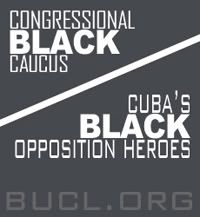Cuba/Spain Fact Sheet
• The Castro regime relies heavily on tourism for foreign currency. 2.2 million tourists visited Cuba in 2006 accounting for earnings that totaled $2.4 billion. During that year Cuba expanded its hotel capacity to 44,000 rooms, about half administered by foreign companies such as Spanish chain Sol Meliá. 1
• 322 of Cuba’s largest enterprises, a group with strong associations with the military, accounted for 89% of exports, 59% of tourism earnings, 24% of service revenues, 60% of hard currency wholesale transactions, 66% of hard currency retail sales, and employed 20% of state workers. 2
• When foreign tourists bask in the sun at a Sol Meliá beach resort in Cuba, get away to one of the island's remote pristine keys on commuter airline Aerogaviota, visit Havana's famed Morro Castle, enjoy typical Cuban cuisine at a restaurant, or indulge in a Cohiba cigar after dinner, they are also unwittingly contributing to the bottom line of the Cuban military's diverse business ventures that brought in an estimated US$1 billion a year in 2003. 3
• Cuban workers employed in joint ventures with foreign firms in the tourism sector are hired through a government employment agency. The salaries of such workers are paid in dollars or Euros to the government agency, which then pays the workers in pesos at an exchange rate of one-to-one. Since market exchange rate is more than 20 pesos per dollar the effective tax rate is 95% percent or higher. 4
• Cuban nationals are routinely barred from enjoying amenities open to foreigners. In a phenomenon popularly known as "tourist apartheid," the best hotels, resorts, beaches, and restaurants are off limits to most Cubans, as are certain government health institutions. 5
• Cuba discriminates politically in the provision of economic rights, most notably in the arena of labor rights, by banning all independent unions. 5
• Cuban law provides punishments ranging from seven to twenty-year penalties for persons who commit "any act designed to impede or prejudice the economic relations of the Cuban state or the economic relations of any industrial, commercial, or financial institution or any other type of institution." 5
• Under the Cuban Associations Law, members of human rights groups, professional organizations of doctors, economists, and teachers, independent labor unions, women's rights groups, and other independent organizations risk prosecution simply for belonging to their group or for carrying out any activities without authorization. 5
1. USA Today
2. Cuba Facts: March 2005, The Cuba Transition Project, Institute for Cuban and Cuban-American Studies, The University of Miami
3. The Cuban Military in the Economy, The Cuba Transition Project, Institute for Cuban and Cuban-American Studies, The University of Miami
4. The Future of Cuba’s Market: Prospects and Recommendations by Luis Locay, The Cuba Transition Project, Institute for Cuban and Cuban-American Studies, The University of Miami, 2004.
5. Human Rights Watch, Impediments To Human Rights In Cuban Law.







2 comments:
Fuera los cubanos que residen en España, estos tambien estan apoyando la politica española, dado que consumen en España y benefician la economía española. Por favor, que se marchen los cubanos de España, que vayan a vivir a USA, que es un pais que apoya los derechos humanos, jajajajaja
Bastard:
Que bien te queda es nombre.
Post a Comment